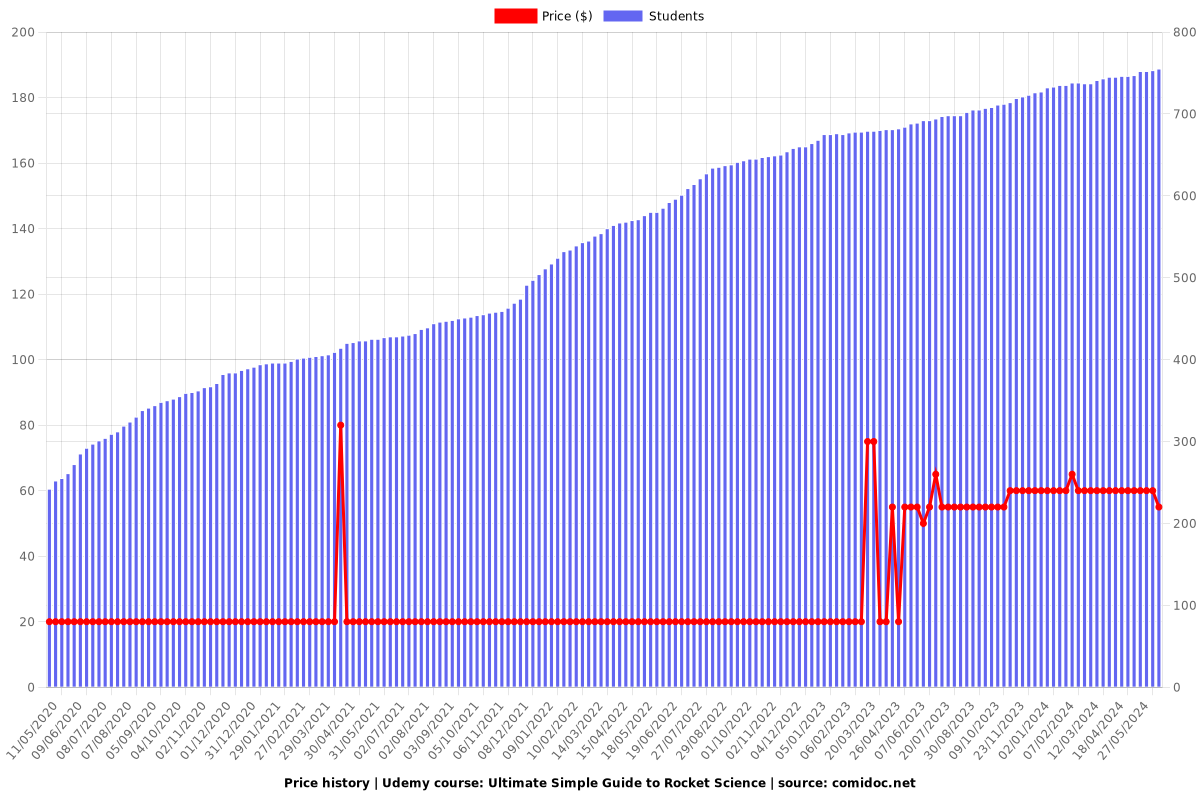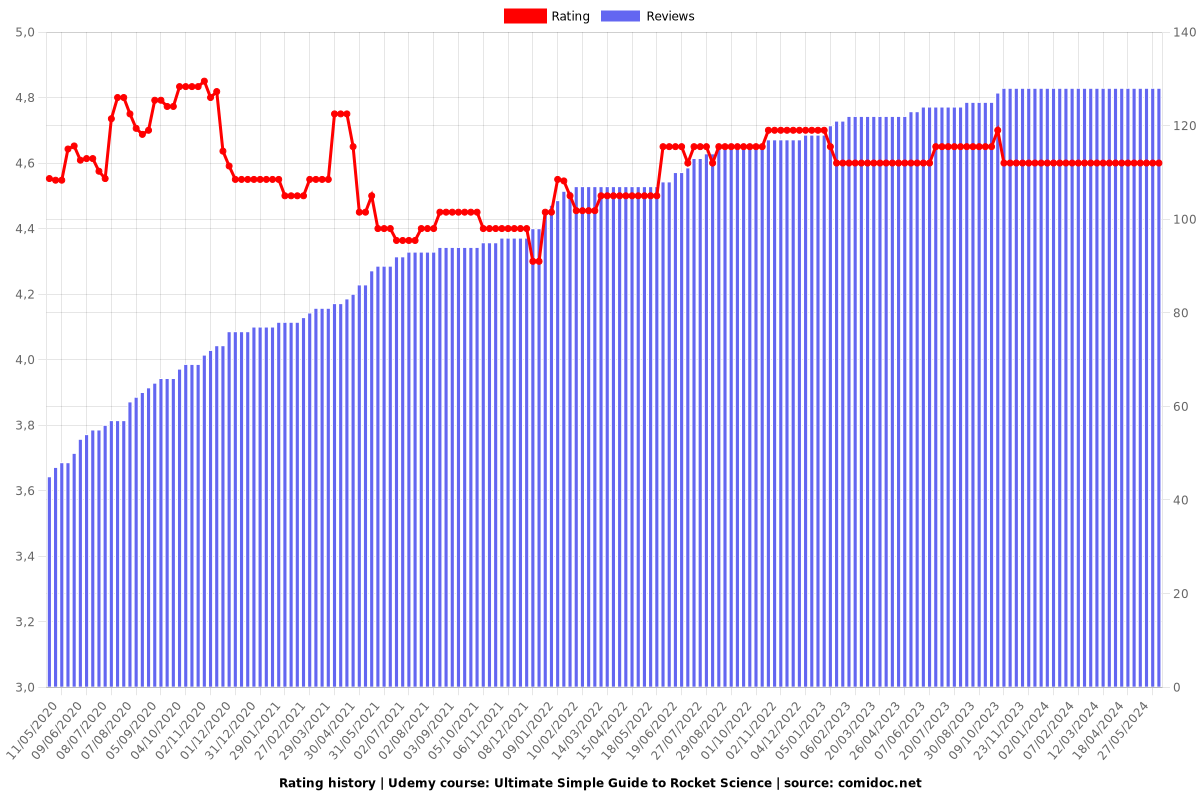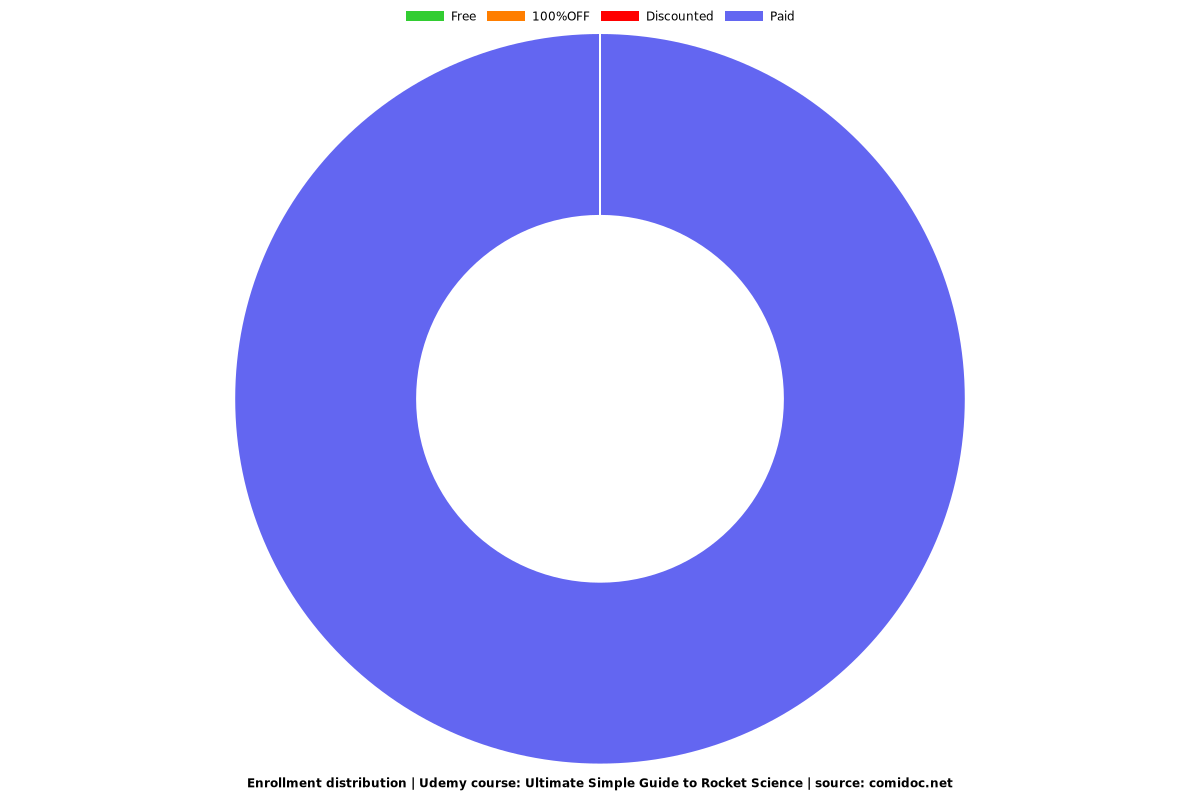Ultimate Simple Guide to Rocket Science
Learn the bare essential equations and ideas for aerospace engineering. No calculus. No programming. Just performance.

What you will learn
Plot basic space missions using Hohmann Transfers
Calculate the motions of most celestial bodies using Kepler's Laws and the Vis Viva Equation
Estimate the performance of different rocket designs and create your own designs at a basic level
Understand the logic and operation of human spaceflight
Why take this course?
🚀 Course Title: Ultimate Simple Guide to Rocket Science 📚 GroupLayouting the complex world of aerospace engineering into digestible pieces, this course is your ticket to understanding the fundamental principles behind rocket science—no calculus, no programming, just pure performance. If you've ever gazed up at the stars and wondered how we can harness the cosmos, then welcome aboard! This is the course for you.
Course Headline: 🌠 Learn the bare essential equations and ideas for aerospace engineering with ease.
Your Journey to Space Begins Here 🛫
What You'll Learn:
- The Mechanics of Motion: Dive into the basics at your own pace, without the complexity of advanced mathematics.
- Orbital Mechanics: Master the laws and rules that govern the motion of celestial bodies, from Earth to Mars.
- Orbit Planning: Calculate the time and fuel required for Hohmann Transfer orbits, ensuring your missions are both efficient and realistic.
- Performance Predictions: Estimate the performance of rocket engines, understand the dynamics of De Laval nozzles, and apply the Tsiolkovski equation to plan fuel requirements for any maneuver.
- Launch Requirements: Learn how to account for launch conditions, drag forces, and other critical factors that affect your mission's success.
- Stability and Budgeting: Grasp the key aspects that ensure a rocket stays stable in flight and how to budget for mass on realistic missions.
Course Content Breakdown:
- Rocket Motion: Get to grips with the fundamental principles of rocket motion, making complex concepts approachable and understandable.
- Orbit Planning: Plan Hohmann Transfer orbits, understand their duration, and calculate the necessary fuel consumption.
- Performance Estimation: Use first principles to predict the performance of rocket engines and analyze the design of De Laval nozzles.
- Tsiolkovski Equation: Apply this equation to estimate the fuel required for various space maneuvers.
- Drag and Launch Conditions: Learn how to factor in launch conditions, drag forces, and other real-world factors that affect rocket performance.
- Rocket Stability: Understand the basic design requirements for a stable flight, from nose cones to fins.
- Mass Budgeting: Learn to budget for mass on realistic missions, ensuring your designs are both functional and feasible.
Course Outline:
This course is designed to provide you with the practical foundations needed for planning missions, considering a career in aerospace, or simply satisfying your curiosity about space travel and rocket design. We'll cover everything from rocket motion to combustion chemistry, giving you the insights necessary to advance your understanding at your own pace.
Important Notes:
📝 Disclaimer: This course serves as an introduction and overview of the basics in rocket science. It is not a replacement for a formal degree in aerospace engineering or specialist consultancy. By purchasing this course, you agree that Philip Baldock, the instructor, is in no way liable for any claims, disputes, losses, injuries, or damages arising from the use of this course or its content.
Embark on your voyage through the cosmos with confidence! "Ultimate Simple Guide to Rocket Science" is here to light your fuse into the world of aerospace engineering. Enroll now and take your first step towards the stars! 🌟✨
Our review
Course Review for Rocket Science 101
Introduction: The Rocket Science 101 course has received a high overall rating of 4.60 from recent reviews, indicating that the majority of students found it valuable and engaging. The reviews vary in their perspectives, ranging from deep satisfaction to some areas for improvement. Below is a synthesized review of the course, highlighting its strengths and areas that could be enhanced based on student feedback.
Pros:
- Ease of Understanding: Many students found the explanations given in the course to be easy to understand, making complex concepts accessible.
- Intuitive and Graphical Explanations: The use of intuitive and graphical explanations was highly praised, with students appreciating the visual aids that help in grasping the subject matter.
- Instructor's Communication Skills: The instructor was commended for communicating well and making the content engaging, as noted by several students.
- Clear and Step-by-Step Explanations: Even students without a scientific background could follow the course thanks to clear, logical step-by-step explanations provided by the instructor.
- Enjoyable Content and Delivery: The course was described as interesting, informative, and accessible, with a level of presentation that struck the right note for learners.
- Broad Questions Addressing: The course did not shy away from addressing broad questions related to space travel, offering insights into the scale of factors in the system.
- Knowledge Sharing and Introduction to Advanced Ideas: The instructor was appreciated for sharing a wealth of knowledge and even introducing next-level ideas without straying off-topic.
Cons:
- Value for Money Concerns: Some students expressed dissatisfaction with the course, feeling that they were paying for content that could be found elsewhere, such as on YouTube.
- Potential for Improvement in Course Structure: A few reviews suggested that the course structure or pacing could be improved to better suit learners who needed to organize information at a slower pace.
- Room for More Enrollments: One student pointed out that not many people had enrolled in the course, indicating that there may be an opportunity for increased visibility and promotion to attract more students.
General Feedback:
- The majority of students were satisfied with the course's ability to explain rocket science, with many finding it a great introduction to the subject.
- The course was praised for its ability to cater to learners from diverse backgrounds, including high school students and those without a scientific background.
- Students who completed the course expressed a newfound interest and understanding of space travel, attributing this to the engaging presentation style of the instructor.
- The course's approach to explaining complex equations was highlighted as a key strength, with students appreciating the way these were made understandable.
Conclusion: Rocket Science 101 is a well-received course that effectively communicates complex scientific concepts through clear explanations and engaging visuals. While there are some concerns regarding the course's pacing and comparisons to free online content, the overall sentiment indicates a high level of student satisfaction and enjoyment. The course is recommended for anyone interested in rocket science or space travel, as it provides a solid foundation with additional insights into advanced ideas. With a few adjustments, this course could potentially cater even better to a wider audience, ensuring that all students receive the full value of their investment.
Charts
Price

Rating

Enrollment distribution
